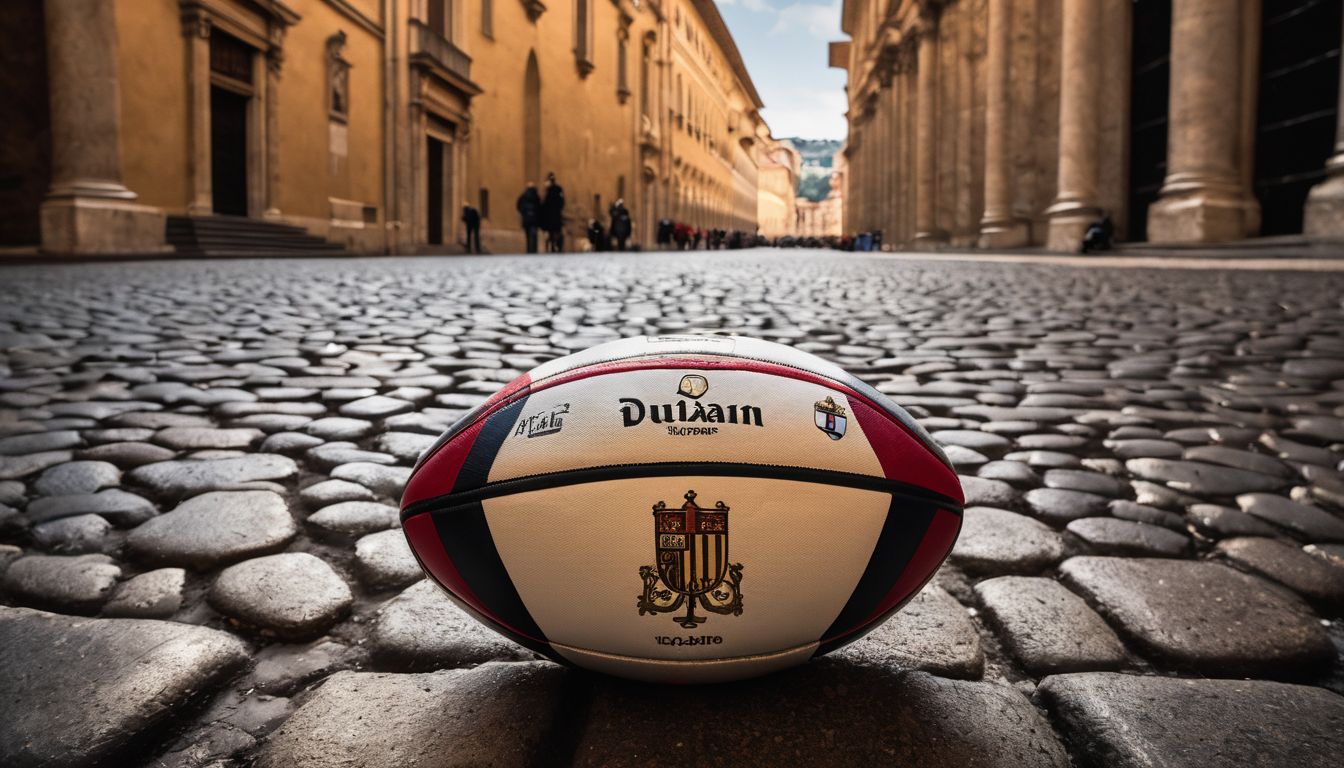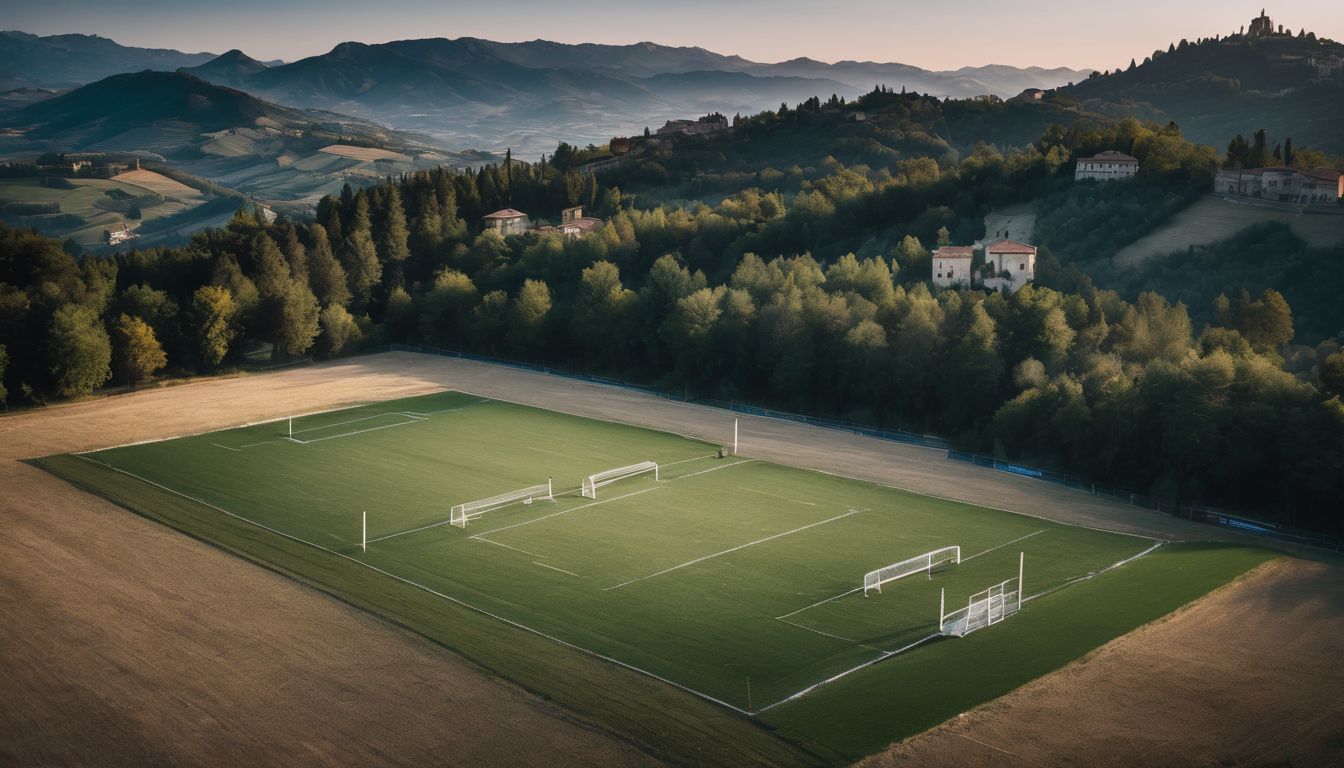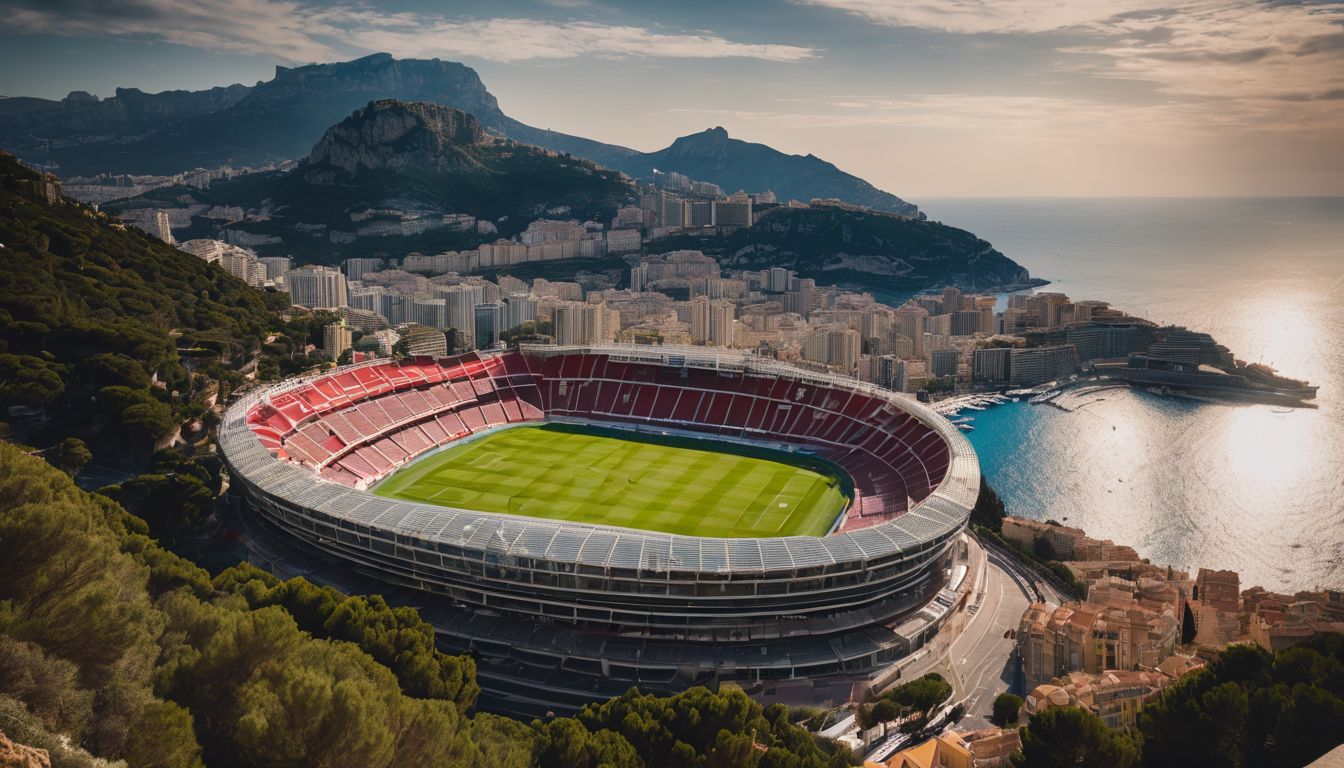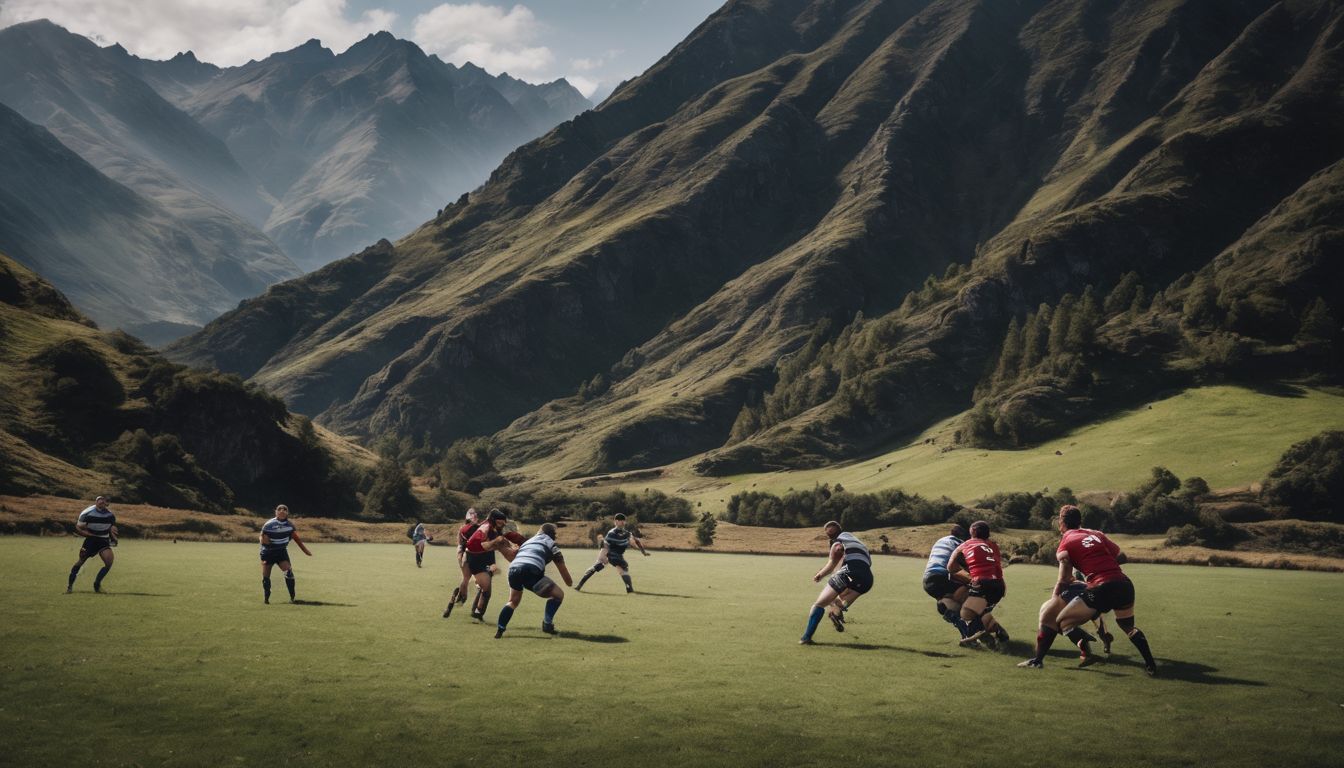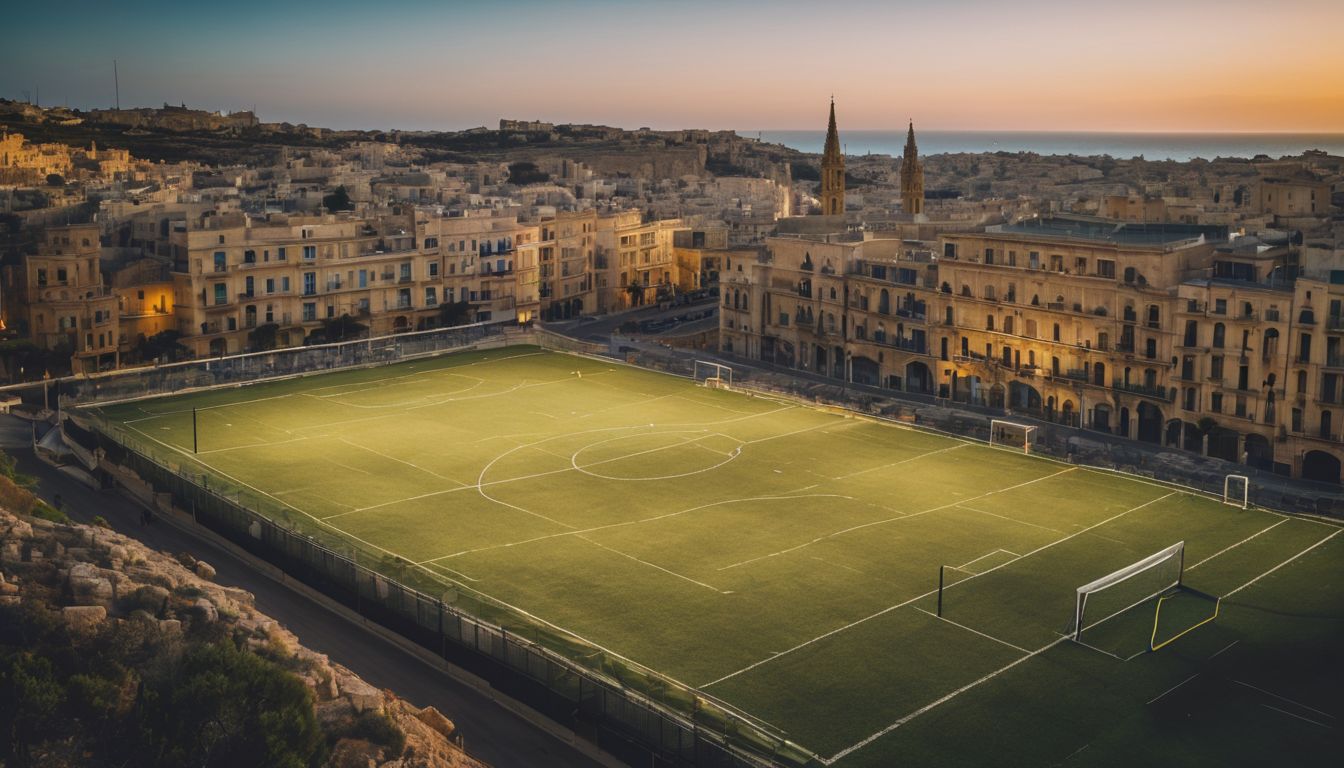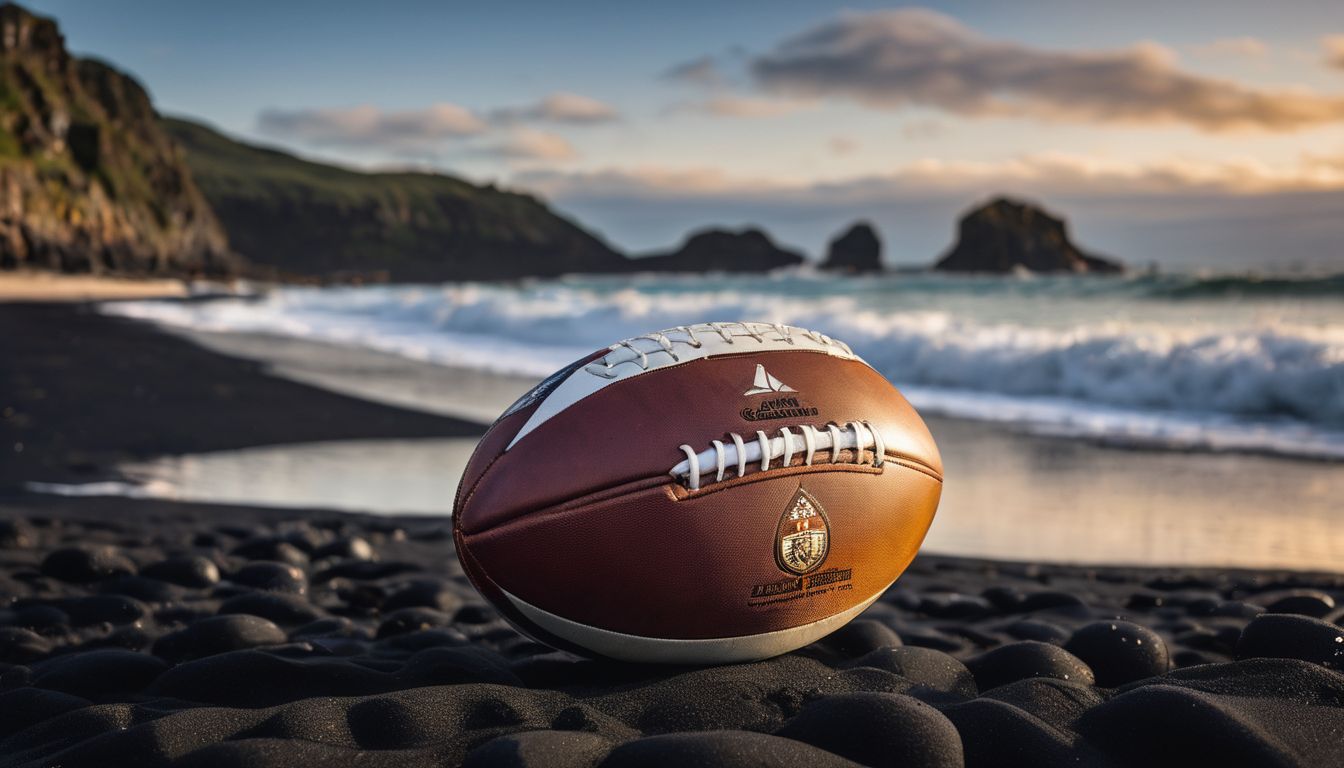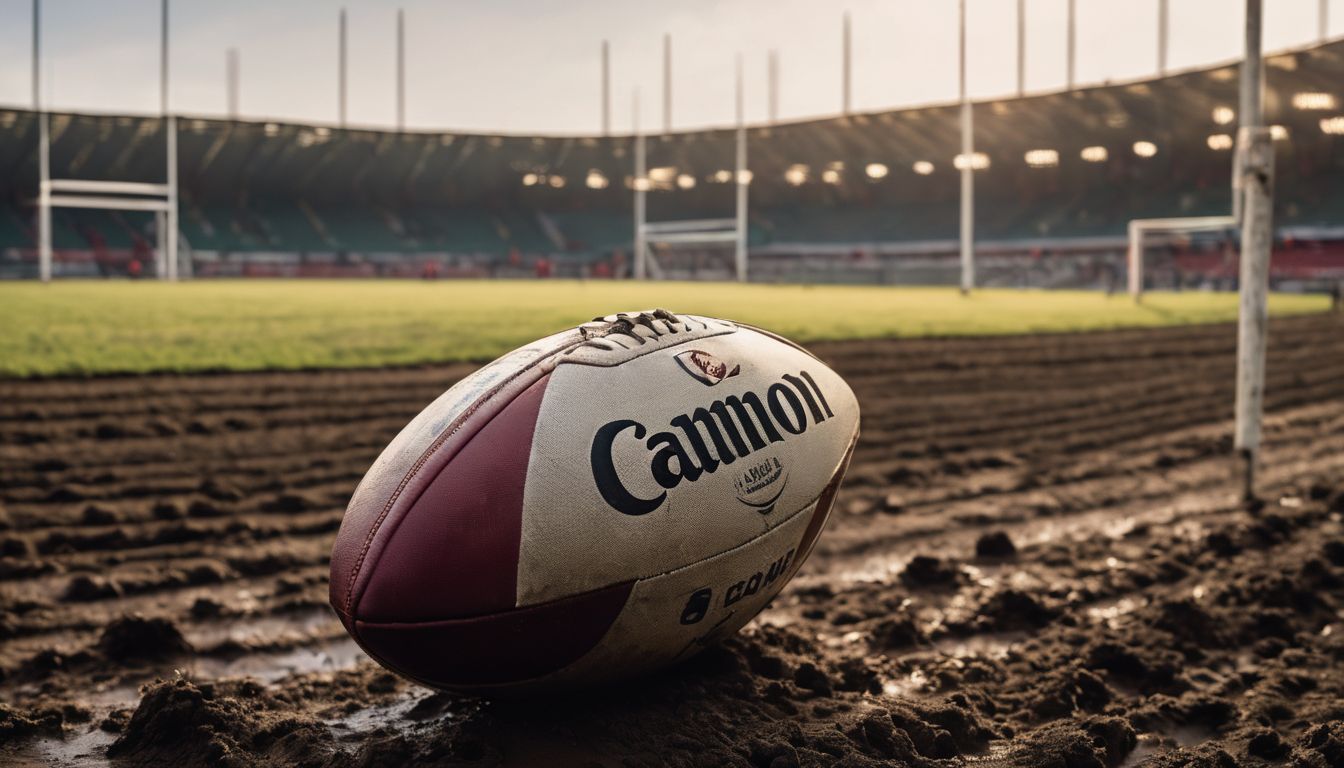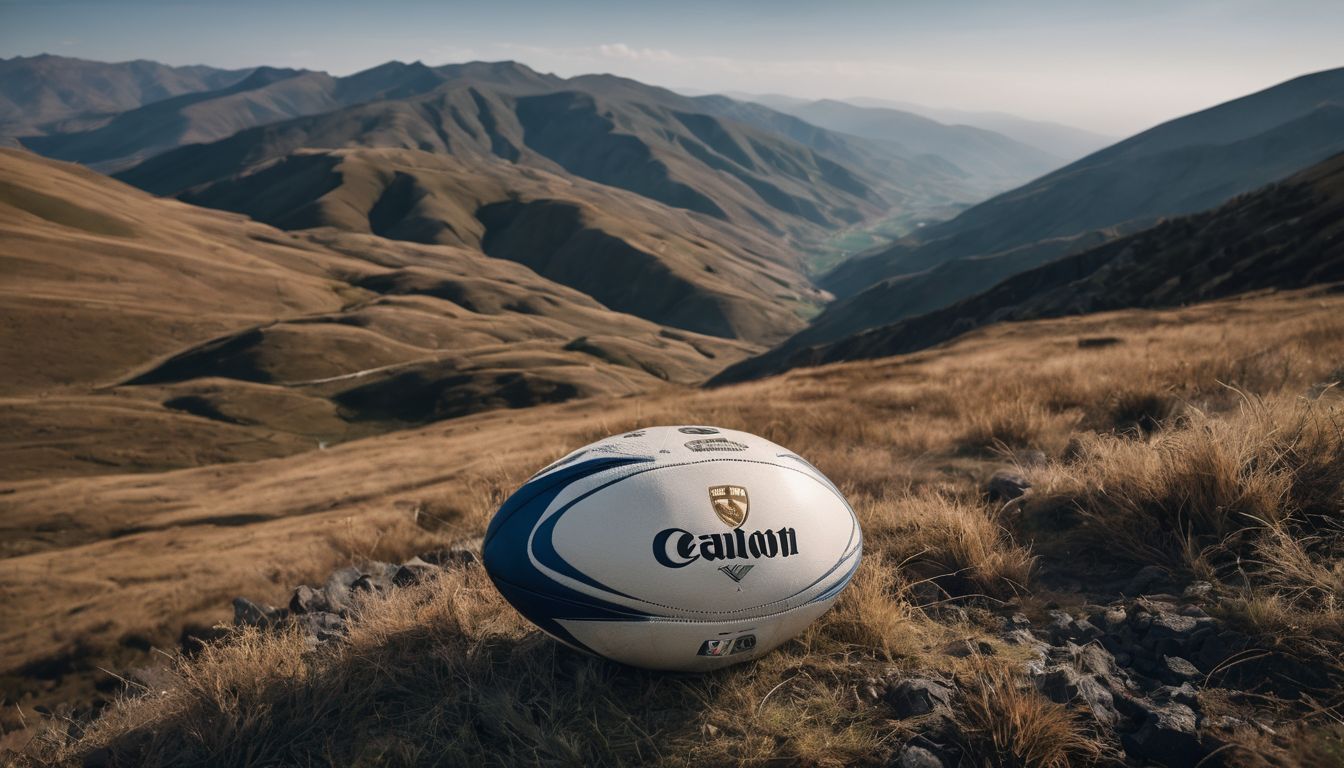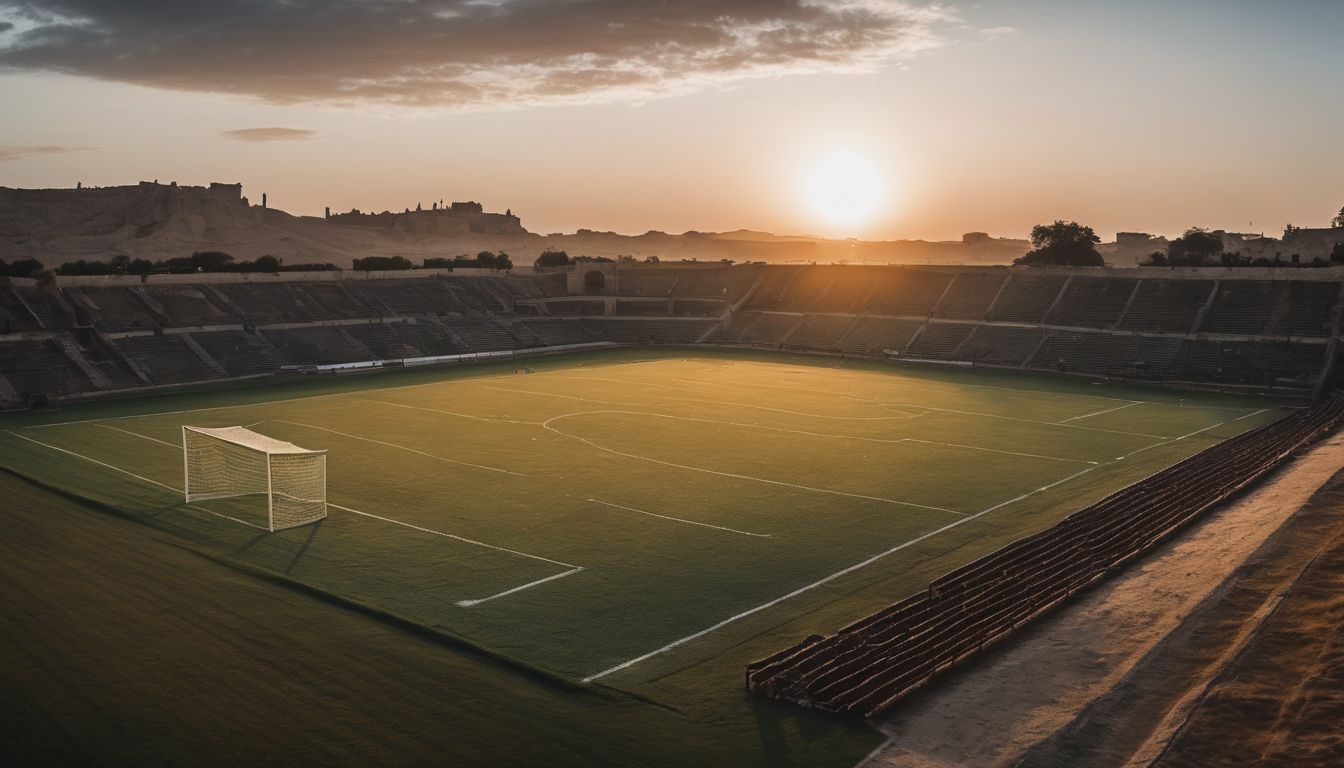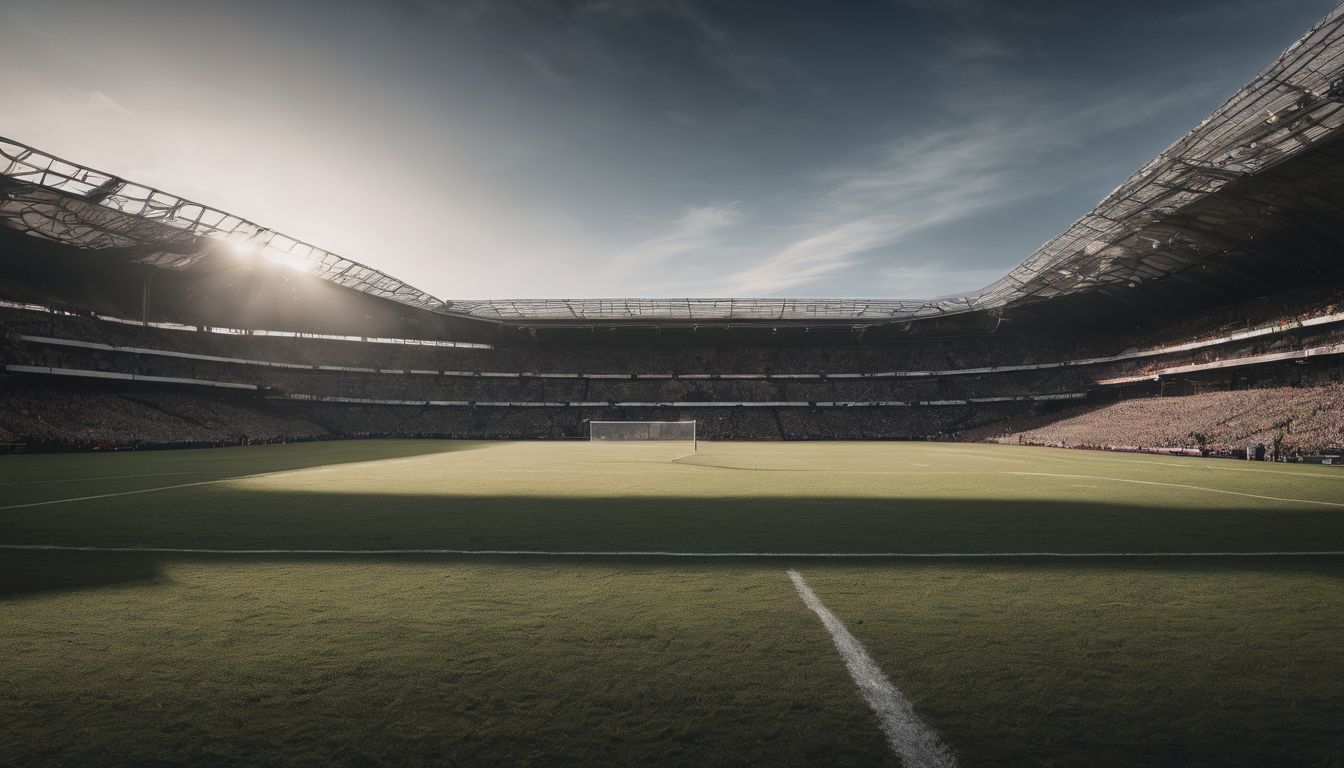
Discover the game’s exciting changes with us!
Key Takeaways
- Rugby has seen increased ball-in-play time, from 35 to 40 minutes over the past decade, making games faster and more dynamic.
- Set – piece scrums have decreased from 12 to 8 per game, leading to smoother matches with fewer stoppages.
- Lineouts won on own throw improved by teams, showing greater precision by jumping up from an average of 85% successful throws in early years of the decade to around 90% later on.
- Tackles per game have risen by ten in number showcasing a boost in physicality and stronger defensive tactics being applied within gameplay.
- Tactical kicking plays a vital role as kicks from hand went up suggesting teams are using territory play more strategically.
Evolution of Rugby: A Statistical Analysis
The last decade has seen a remarkable transformation in rugby union, underscored by a wealth of statistics that reveal the depth of tactical change. Here’s a look at some numbers shaping the game’s evolution.
| Statistical Measure | Early 2010s | Late 2010s | Changes Observed |
|---|---|---|---|
| Average tackles per game | 150 | 160 | Increased physicality and defensive strategies |
| Ball-in-play time | 35 minutes | 40 minutes | More dynamic gameplay, fitness demands |
| Set-piece scrums | 12 | 8 | Smoother games, fewer stoppages |
| Lineouts won on own throw | 85% | 90% | Higher precision and skill level |
| Kicks from hand | 22 | 25 | Strategic territorial play importance |
| Penalties conceded | 10 | 8 | Improved discipline and rule adaptation |
These figures highlight the sport’s trajectory, with an increased emphasis on stamina and strategic play. Tactical ingenuity has become paramount. Adaptability in response to changing rules reflects a dedication to player welfare. This statistical analysis confirms that the sport is very much alive, continually adapting, and always thrilling its fans.
Changes in Gameplay
The evolution of rugby tactics has brought about significant changes in gameplay over the past decade. From an increase in ball-in-play time to strategic shifts in set-piece scrums, lineouts, tackles, carries and rucks, and the kicking game, the way rugby is played has evolved considerably.
More Ball-In-Play Time
Rugby has witnessed a notable increase in ball-in-play time over the past decade, reflecting a shift towards dynamic and fast-paced gameplay. This surge in on-field action has been driven by tactical advancements aimed at maintaining possession, strategic decision-making, and quick transitions between attack and defence.
Teams are actively seeking to extend their periods of possession by focusing on efficient ruck management, skillful handling, and intelligent offloading under pressure.
The rise in ball-in-play time is also attributed to the emphasis on fitness levels among players coupled with improved coaching methods that prioritise endurance and rapid recovery.
Set-Piece Scrums and Lineouts
Set-piece scrums and lineouts have undergone strategic evolution in rugby union, shaping the dynamics of gameplay. Teams strategically position players during a scrum to gain possession of the ball, emphasising power and technique.
Lineouts involve tactical precision as teams aim to secure possession from a throw-in, often utilising player height and jumping ability. The evolution of set-piece tactics reflects the sport’s adaptability, with teams continuously innovating to gain an edge in these crucial aspects of play.
The rules governing set-piece scrums and lineouts have evolved over time to prioritise safety while preserving the integrity of the game. This has influenced team strategies and player roles during these pivotal moments in matches.
Tackles, Carries, and Rucks
Rugby’s evolution in tactics has seen a notable increase in tackles, carries, and rucks over the past decade. Teams are focusing more on gaining ground through powerful runs and robust defensive plays.
This shift reflects a strategic move towards controlling possession and territory while minimising turnovers. The average number of tackles per game has risen significantly, emphasising the sport’s physicality and the tactical importance of defensive play.
Furthermore, there has been a noticeable increase in carries as teams prioritise making ground through ball-carrying players. Concurrently, rucks have become an integral part of rugby strategy, with quick and efficient breakdown play being crucial for maintaining possession and launching dynamic attacking moves.
Kicking Game
Transitioning from the physicality of tackles, carries, and rucks to the strategic side of the game, let’s delve into the kicking game. In rugby union, kicks are pivotal for changing field position, relieving pressure in defense, or launching counter-attacks.
Teams strategically employ various types of kicks such as up-and-unders, grubbers, box kicks and cross-field kicks to gain tactical advantages on the field.
Kicking has become a key element in modern rugby tactics. It offers teams an opportunity to exploit space behind defensive lines or apply pressure on opponents by forcing them to play from deep within their half.
Tactical Shifts
Teams have adapted to the changing nature of rugby by focusing on utilising power, creating space, and involving forwards in attack. Additionally, there has been a shift in defensive tactics to counter pick and go plays effectively.
Use of Power
Teams strategically deploy power plays to gain ground, break through defensive lines, and dominate set-piece situations. Utilising brute force in scrums and mauls allows them to assert control over the game’s physical aspects.
With the increasing emphasis on strength and athleticism, teams are employing power tactics to create momentum and drive the ball forward with dynamic aggression. This has led to a significant shift in player physique, as athletes seek to enhance their strength and power capabilities to meet the demands of modern rugby gameplay.
In attack, forwards are being utilised more effectively as powerful ball carriers capable of breaching defensive lines and gaining valuable meters. Conversely, defensively sound teams have focused on countering these power plays by improving their tackling techniques and coordination in defense.
Creating Space
Creating space is essential in modern rugby tactics. Teams strategically position players to open up gaps in the opposition’s defensive line. By using effective running lines, offloading under pressure, and quick passing, teams create opportunities to break through the defence and advance towards the try line.
This tactical shift has led to a more dynamic style of play, requiring players to have not only strength and speed but also exceptional spatial awareness and decision-making skills.
Furthermore, innovative attacking patterns have emerged, focusing on exploiting overlaps and mismatches in defensive formations. As a result, creating space has become a fundamental aspect of offensive rugby tactics.
To enhance their attacking capabilities, teams invest heavily in skill development and positional awareness for both forwards and backs. The ability to recognise potential spaces on the field allows for strategic movement during play that can catch opponents off guard or force them into making critical positioning errors.
Utilising Forwards in Attack
Continuing the evolution of rugby tactics, utilising forwards in attack has become increasingly strategic. Teams are leveraging the strength and agility of their forward players to gain ground and create scoring opportunities.
Through precise coordination and effective ball-handling skills, forwards are being integrated into attacking plays with more finesse than ever before. This tactical shift has added a new dimension to the game, allowing teams to break through defensive lines and maintain possession in critical areas of the field.
Rugby statistics reflect this trend, showing an increase in forward involvement in attacking phases of play. The creative use of forwards as ball carriers, support runners, and offload options has reshaped offensive strategies, requiring defenders to adapt their tactics accordingly.
Defending Against Pick and Go Plays
Teams must employ a cohesive defensive strategy to counter pick and go plays effectively. Anticipating the opposition’s moves, the defending team should maintain a strong defensive line, preventing gaps for the attacking team to exploit.
Players need to quickly assess and react to the situation, communicating effectively with teammates to ensure coordinated defensive efforts. By disrupting the rhythm of the opposition’s pick and go plays, teams can force turnovers or gain possession, thwarting scoring opportunities.
Furthermore, maintaining physicality in defense is crucial in halting pick and go plays. Players need to engage in powerful tackles while staying disciplined in their positioning on the field.
This prevents attackers from gaining momentum and ground advantage, ultimately nullifying their attempts at breaching through the defensive line. Employing these tactics ensures that teams are well-prepared to counter any pick and go strategies employed by their opponents.
Injury Trends in Rugby Union
Understanding the epidemiology of injuries and risk factors in rugby union. Interested in learning more about how these trends have shaped the game? Keep reading to find out!
Epidemiology of Injuries
Rugby has a high injury rate, with statistics showing that players are susceptible to a range of injuries. These include concussions, fractures, dislocations, and ligament sprains.
Scrum and tackling activities contribute significantly to these injuries due to the physical nature of the sport. The average number of tackles per game can be used as an indicator for understanding the physical demands placed on players and how it impacts injury rates.
Understanding the epidemiology of injuries in rugby is crucial for player welfare and performance analysis. Not only does this data inform strategies for injury prevention but it also highlights the need for ongoing research and development in player safety within the sport.
Risk Factors
Following a detailed understanding of the epidemiology of injuries in rugby, it is crucial to recognise the pivotal risk factors associated with the game. These factors significantly impact player welfare and the overall dynamics of gameplay.
- Player Position: Each position on the rugby field presents unique physical demands and injury risks, affecting players differently based on their roles in the game. For instance, forwards face greater risks of scrum-related injuries due to their involvement in set-piece plays.
- Contact Intensity: The nature of high-impact collisions and tackles within rugby contributes significantly to injury risk. With players covering various distances during a match, the frequency and intensity of contact moments play a crucial role in injury incidence.
- Training Methods: The training techniques employed by teams have a direct impact on injury rates, with inadequate preparation or overtraining leading to heightened vulnerability among players.
- Physical Conditioning: Players’ body composition and strength have evolved over time, influencing both performance and susceptibility to specific types of injuries such as muscle strains or ligament tears.
- Rule Changes: Modifications in game regulations have been implemented to address safety concerns, impacting injury trends based on alterations in tackle techniques, scrummaging laws, and contact protocols.
- Fatigue Management: Managing player fatigue during matches is imperative for reducing injury risk; thus, team strategies related to substitutions and player rotation are critical elements in injury prevention.
- Equipment Quality: The design and quality of protective gear such as headgear and padding play a significant role in minimising certain types of rugby-related injuries.
- Player Experience: Novice or less experienced players may exhibit higher vulnerability to certain injuries due to lesser familiarity with physical demands and decision-making under pressure during matches.
Conclusion: The Ever-Evolving Nature of Rugby Tactics
Rugby tactics have evolved significantly over the past decade, with a notable shift in gameplay strategies and player positions. The sport has adapted to changes in rules and regulations to prioritise player welfare and respond to emerging trends.
Teams have embraced tactical innovation, shaping the dynamic landscape of rugby through strategic play, defence, and attack. As the sport continues to evolve, it remains a thrilling testament to adaptability and ingenuity on the field.
FAQs
1. How have rugby tactics evolved over the past decade?
Rugby tactics and strategies have changed dramatically, with new formations and defensive techniques developing due to innovations in coaching and player development.
2. What impact have rule changes had on rugby?
Rule changes in rugby, including those affecting the laws of contact sport, have altered how players engage on the field, influencing both rugby team performance and injury trends among athletes.
3. Have players’ bodies changed in rugby over the years?
Yes, athlete body changes are significant in rugby; players are now generally bigger, stronger, and faster which has led to evolving tactics that consider these physical developments for optimal game performance.
4. Can you describe some key areas where rugby coaching has improved?
Rugby coaching has improved through better match analysis tools and a greater focus on refining individual skills as well as overall team tactics leading to enhanced player performance.
5. Are there any new trends in how defensive plays are executed in modern-day rugby?
In recent years there’s been a shift towards more sophisticated defensive rugby tactics with coaches implementing intricate strategies based on rigorous game analysis to outmaneuver opponents.



